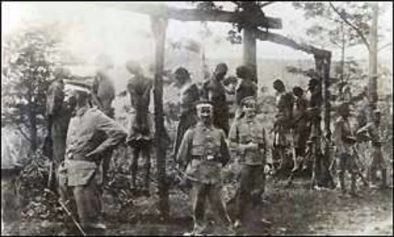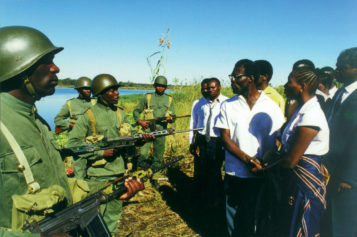
LONDON, ENGLAND – FEBRUARY 08: Chadwick Boseman attends the European Premiere of ‘Black Panther’ at Eventim Apollo on February 8, 2018 in London, England. (Photo by Jeff Spicer/FilmMagic)
In late March, “Black Panther” became the most successful film in sub-Saharan Africa ever. The reasons for this are obvious. The United States is the world’s cultural powerhouse, and Hollywood is the centripetal force of that house. Thus, it is significant for a Hollywood movie to depict Africa in the way the film does. It depicts Africa as a successful enterprise with the world at its feet. Although this depiction as only fictional at present, Africans generally see it as the possibility of an auspicious future.
In the aftermath of the film’s success, though, the question remains whether Africans must always rely on Hollywood to make these kind of films. Are African movie directors and writers able to imagine such concepts? Could such films be as successful as “Black Panther”?
One answer would be that, despite the thrill that the optimistic African movie might offer, Africans can still discern mediocrity when they see it. “Black Panther” displays a resplendence that is uncommon in the African film industry, which is most notably represented by Nigeria’s Nollywood. More often than not, the movies are rushed, not well-curated, and sloppy. Yet they succeed in spite of this simply because Africans want their own stories to be told by their own people. The typical Nollywood or “Ghallywood” failures in the sub-Saharan African market are often traceable to the fact that there are too many films being produced and their rejection by the African elite class who are turned off by artistic deficiencies.
There have been African films in recent years that have overcome these obstacles, the most famous being Abderahmane Sissako’s “Timbuktu,” a film The New York Times recently named one of the 25 best films of the century so far. It is a classic set firmly in Africa, and which chronicles a deeply-felt African story while employing some of the most ambitious cinematography and filming techniques. While it also succeeds on the level of story-telling as well as its acute awareness of the urgent political atmosphere of its time, it’s biggest strength is the way it showcases the various languages spoken in the historical settings of Timbuktu. The result is a convincing code-switching maze that serves as its own individual commentary about the polyphonic jumble that is some African countries.
Perhaps, then, a film that would be as welcomed in sub-Saharan Africa as “Black Panther” will have something to do with the use of non-Western languages. The New York Film Festival offers a few such films yearly, and this year “Border,” by Apoline Traore, is highlighted. While the film does have merit and is definitely worthy of all the accolades it is receiving, whether it will be able to reach a mass audience in the subcontinent remains to be seen. Other recent films share affinity with it, such as Biyi Bamidele’s “Half of a Yellow Sun,” Mira Nair’s “Queen of Katwe,” and Izu Ojukwu’s “’76,” to name a few — films conceived by Africans, firmly rooted in African realities, and produced through intercontinental efforts. But they should, and so also should films made entirely by Africans without any international help.
Onyeka Nwelue’s “Agwaetiti Obiuto” is one such film. It is an experimental movie whose primary language is Igbo. The movie, released earlier this year, is rendered in classic close shots of startling monochrome sequences that recalls the movies of Jean Goddard. It pulls in news reels, and accretes significant details which, in accumulation, result in a striking portrait of the ancient city of Oguta in eastern Nigeria couched in tense cinematic grammar.
One would wonder if a film like that should not be more widely seen in Nigeria and across sub-Saharan Africa, especially around the place and culture it so religiously seeks to promote. Perhaps it will if all who have seen the possibility offered by “Black Panther” support such local productions and help lift it so that sub-Saharan Africa will not be left waiting for too long for the next time Hollywood chooses to focus on Africa.


